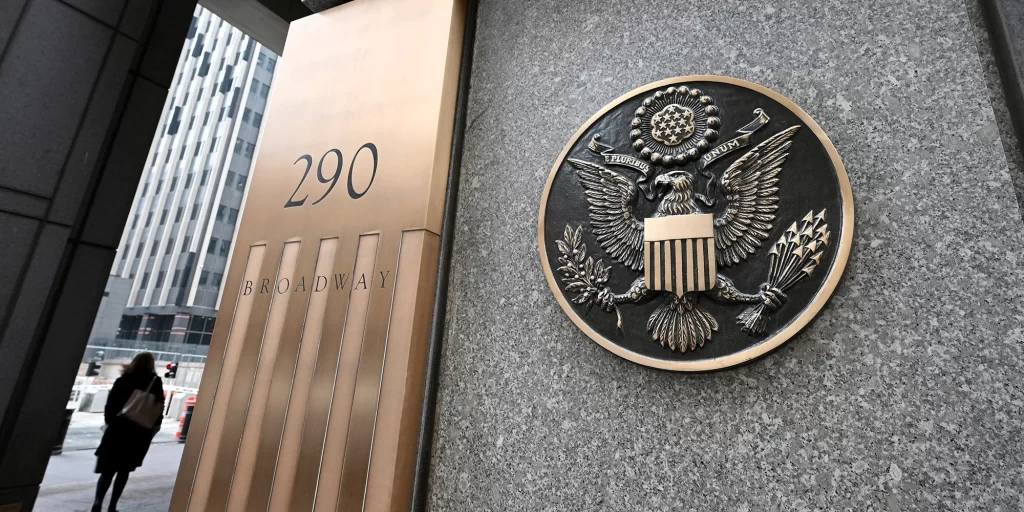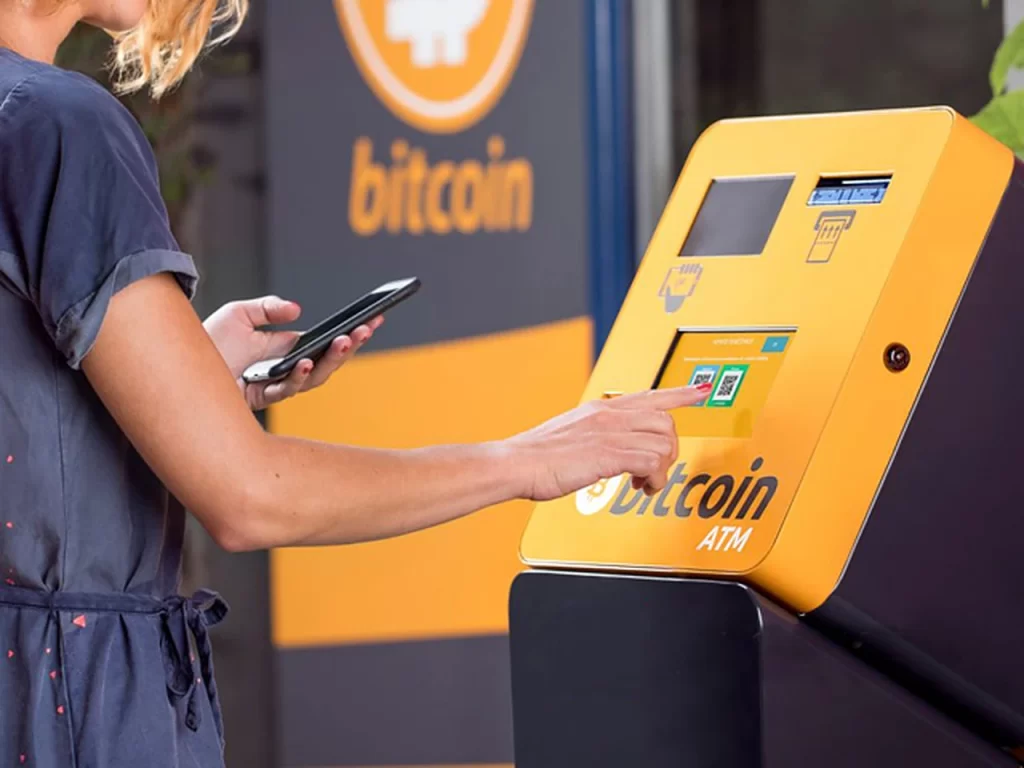Bitwise Asset Management, a leading crypto index fund manager, is keen to clarify that it has absolutely no ties to the troubled tech startup, Bitwise Industries, currently facing legal troubles brought forth by the United States Securities and Exchange Commission (SEC).
The co-founders of Bitwise Industries, Irma Olguin Jr. and Jake Soberal, have been slapped with charges of wire fraud conspiracy and alleged misappropriation of $100 million from various investors, despite their faltering business model.
The SEC claims that they went to great lengths, including falsifying documents, to deceive investors and secure funds.
The resemblance in the names of the two entities has led to some confusion, with social media posts erroneously using Bitwise Asset Management’s logo when discussing Bitwise Industries.
However, Bitwise Asset Management is eager to make it abundantly clear that there is no connection between the two.
READ MORE: Cardano’s ‘Boring’ Approach Proves to be a Pillar of Strength in Blockchain Evolution
In a statement issued on November 10th, Bitwise Asset Management unequivocally asserted their independence from the beleaguered tech firm, stating, “San Francisco-based Bitwise Asset Management, Inc., the largest crypto index fund manager in America, has no relationship with, and has never had a relationship with, the now-defunct Bitwise Industries, a former technology company based in Fresno, California.”
Bitwise Asset Management is renowned for its diverse range of crypto-related investment products, which include Ether futures exchange-traded funds (ETFs).
Additionally, the company is actively pursuing approval for a spot Bitcoin ETF, positioning itself at the forefront of the evolving cryptocurrency investment landscape.
In stark contrast, Bitwise Industries seems to be a defunct tech company with no history of involvement in digital assets or cryptocurrencies.
The distinction between the two entities is paramount, especially given the legal issues surrounding Bitwise Industries, and Bitwise Asset Management is determined to ensure that this distinction is crystal clear to the public and investors alike.
Binance, the popular cryptocurrency exchange, is making significant moves in its exit strategy from the Russian market.
In an official announcement made on Friday, the exchange revealed its plan to cease accepting deposits in Russian rubles (RUB) starting November 15, 2023.
Additionally, Binance advised its users to withdraw any remaining RUB from their accounts on the platform, with RUB withdrawals set to be terminated on January 31, 2024.
To facilitate this transition, Binance has offered its users an alternative solution.
They can transfer their funds to CommEX, a newly established cryptocurrency exchange that acquired Binance’s Russian division back in September 2023.
Notably, CommEX will provide zero-fee RUB withdrawals, making it an attractive option for users looking to maintain their cryptocurrency assets.
Aside from CommEX, Binance users also have the option to withdraw RUB through Binance’s fiat partners.
READ MORE:HSBC Teams Up with Ripple’s Metaco for Innovative Institutional Custody Platform
These partners enable users to convert their RUB to cryptocurrency using the platform’s “Convert” tool or trade on the Binance Spot Market.
It’s worth noting that this method incurs a fee of up to 1%, as confirmed by a Binance spokesperson.
The decision to exit the Russian market stems from Binance’s sale of its Russian division to CommEX.
This transaction took place in late September 2023, and it has raised questions and controversy within the cryptocurrency community.
Notably, details about the size of the deal and the founders of CommEX have been scarce, leading some observers to speculate that CommEX might simply be a rebranding of Binance in order to continue operations in Russia without facing issues related to Western sanctions against the country.
Despite these speculations, Binance has consistently denied any ties between the exchange and CommEX, asserting that the sale marks its full exit from the Russian market.
A spokesperson for Binance emphasized, “With this sale, Binance fully exits Russia. We have no plans to get back.”
The situation continues to be closely watched by the cryptocurrency community, as the exit strategy unfolds and the crypto market landscape evolves.
The Nigerian federal government, in collaboration with the Raspberry Pi Foundation, a UK-based computing education charity, is embarking on an exciting initiative to establish Code Clubs across Nigeria.
These Code Clubs are designed for students aged 7 to 17 and serve as extracurricular artificial intelligence (AI) programming hubs, with the goal of nurturing digitally literate and innovative young minds in Nigeria.
The Ministry of Communications, Innovation, and Digital Economy announced this groundbreaking program on November 8th.
The primary objective of these Code Clubs is to introduce young participants to the world of coding and digital technology, encouraging them to apply creative problem-solving skills in their daily lives.
Initially, these clubs will launch in 17 knowledge exchange centers and then expand to various locations across Nigeria’s six geopolitical zones.
Bosun Tijani, Nigeria’s Minister of Communications, Innovation, and Digital Economy, emphasized the significance of fostering a knowledge pipeline in Nigeria through free coding clubs, in partnership with the Raspberry Pi Foundation.
This initiative aims to bolster Nigeria’s digital economy by enhancing technical knowledge and talent development.
READ MORE: Cardano’s ‘Boring’ Approach Proves to be a Pillar of Strength in Blockchain Evolution
As part of this collaboration, the Raspberry Pi Foundation will provide educators and young participants with comprehensive toolkits, support, and guidance.
Simultaneously, the Ministry will oversee the establishment and operation of Code Clubs throughout the country through a well-structured partnership framework.
A crucial aspect of this initiative is the support extended to partners, which includes individuals, educational institutions, and organizations dedicated to advancing computing education.
These partners will receive resources, assistance, and operational guidance from a designated central organization.
The Ministry has outlined a wide range of educational pathways for Code Club partners, covering various coding and technology-related subjects such as robotics, electronics, game development, algorithms, web development, programming languages, and project-based learning.
In a related development in October, the Nigerian government introduced a program offering 5 million naira (approximately $6,444) grants to 45 AI-focused startups and researchers.
This initiative is part of the Nigeria Artificial Intelligence Research Scheme, which aims to promote the extensive application of AI for economic progress and technological advancement in the country.
In summary, the partnership between the Nigerian government and the Raspberry Pi Foundation to establish Code Clubs represents a significant step towards nurturing young talent and boosting Nigeria’s digital economy through coding and technology education.
SafeMoon CEO Braden John Karony’s bail release order has hit a roadblock as U.S. federal prosecutors argue that his release poses a flight risk and a potential threat to the community.
On November 9, New York District Judge LaShann DeArcy Hall halted the November 8 bail release order that had been granted by a Utah Magistrate judge, allowing Karony to post a $500,000 bail.
Prosecutors in New York contested Judge Daphne Oberg’s decision, asserting that the release order was granted “without consideration of the defendant’s substantial financial means and ability to flee,” and they further claimed that his release could endanger the community, given the serious charges he faces, which could result in a maximum sentence of 45 years in prison.
The prosecution argued, “These facts all provide powerful incentives for the defendant to leverage his substantial (and opaque) financial assets and foreign ties to avoid that outcome.”
Judge Oberg’s initial order would have permitted Karony to reside in his Miami apartment but restricted him from accessing crypto exchanges or wallets, conducting cryptocurrency transactions, or engaging in promotional activities.
However, prosecutors alleged that the Utah court did not adequately assess Karony’s financial resources when setting his bail at $500,000.
READ MORE: HSBC Teams Up with Ripple’s Metaco for Innovative Institutional Custody Platform
They contended that Karony had provided minimal information about his finances and could potentially access assets amounting to millions of dollars.
Additionally, prosecutors pointed out that Karony had extensive international ties, having spent months abroad in Europe and the United Kingdom with his British fiancée, a resident and citizen of the UK.
The prosecution requested that Karony be transported to New York and detained there, a matter that Judge Hall will consider at a later date.
Karony, along with SafeMoon creator Kyle Nagy and Chief Technology Officer Thomas Smith, was arrested on October 31 at Salt Lake City International Airport.
They face charges of conspiracy to commit securities and wire fraud, as well as money laundering conspiracy.
The U.S. Securities and Exchange Commission (SEC) also brought various fraud charges against them, alleging unregistered securities sales and misappropriation of funds to support the price of SafeMoon (SFM) tokens.
While Thomas Smith was released on a $500,000 bond on November 3 and is pursuing a plea deal, the Department of Justice stated that Kyle Nagy remains at large.
Bitcoin has surged to a significant milestone, reaching $37,000 for the first time in 18 months. However, this impressive price action has raised suspicions among traders and market observers.
Bitcoin’s recent price surge, which saw it break through the $37,000 mark, is now targeting the elusive $40,000 level.
This upward movement in November has surprised many in the market, especially after the cryptocurrency gained nearly 30% in October.
One area of concern highlighted by on-chain monitoring resource Material Indicators is the lack of strong trading volume to support this rally.
While the price has been climbing rapidly, the volume of trading activity hasn’t followed suit. The support level is currently holding at $33,000, while resistance has shifted to the $42,000 range.
Material Indicators emphasized the unusual nature of this price move, stating, “There is no denying the fact that price has been challenging a number of different local top signals, but there is also no denying that something doesn’t seem right about this move.”
They pointed out the red flag of price appreciation on declining volume, a pattern that often leads to unfavorable outcomes.
READ MORE: Cardano’s ‘Boring’ Approach Proves to be a Pillar of Strength in Blockchain Evolution
Meanwhile, prominent trader Skew has noted ongoing whale selling pressure as Bitcoin approaches the $40,000 mark, which has become a psychologically significant level.
In addition to price action, open interest (OI) in Bitcoin futures has been on the rise. According to data from CoinGlass, total Bitcoin futures OI has surpassed $17 billion, reaching its highest level since mid-April.
Financial commentator Tedtalksmacro has highlighted the importance of OI in recent rapid upward movements in the market.
He noted that during bearish periods, the market tends to fade these OI impulses, leading to a ranging and unpredictable environment.
Bitcoin’s recent price surge may be exciting for many, but the concerns surrounding trading volume and the potential impact of large whale selling have made traders cautious.
Additionally, the role of open interest in recent market dynamics adds another layer of complexity to the ongoing Bitcoin rally.
Market participants will be closely monitoring these factors to determine the sustainability of the current price levels.
Cardano, a blockchain platform known for its meticulous academic approach, has faced criticism for its slower development pace, but Cardano Foundation CEO Frederik Gregaard proudly embraces this “boring” reputation.
Speaking at the Cardano Summit in Dubai, Gregaard defended the platform’s deliberate progress, emphasizing its commitment to academic rigor.
Gregaard highlighted the years spent on research and implementation, with some of Cardano’s core principles now adopted by faster-moving blockchain platforms.
He expressed pride in contributing to the creation of more resilient and adaptable blockchains, stating that this is beneficial for the environment and humanity as a whole.
Gregaard also noted the importance of this trend in the context of increasing artificial intelligence adoption, which requires computable data.
Despite its deliberate approach, Cardano has achieved significant milestones, such as the introduction of Hydra, a layer-2 scalability solution, and the stake-based multisignature protocol Mithril.
These updates have driven network growth, with Cardano’s total value locked (TVL) increasing by 198% year-to-date, elevating it from 34th to 15th place among all networks.
As Cardano prepares for the Voltaire era, focusing on decentralized governance, Gregaard acknowledged the project’s ambitious aspirations in this regard. He emphasized the importance of learning from other networks, like MakerDAO, to capture Cardano’s vision and culture.
Gregaard announced that Cardano will host workshops in the coming year to allow the community to verify, validate, and contribute to a constitutional document, aligning with Cardano Improvement Proposal 1694 (CIP-1694).
READ MORE:Bitcoin Faces Volatility as Open Interest Surges, $36,000 Remains a Key Barrier
Despite Cardano’s strong community, it has not been immune to crypto tribalism, a phenomenon causing division in the industry. Gregaard viewed this tribalism as a strength, emphasizing the need for a large community in public, permissionless blockchains.
He cited the addition of over 200,000 new noncustodial wallets during a bear market as evidence of their community growth.
The CEO also noted that many of the most significant developments in blockchain occurred in second and third-generation projects led by well-known figures.
He highlighted Ethereum co-founders Charles Hoskinson and Gavin Wood’s ventures into Cardano and Polkadot, respectively.
Gregaard highlighted Cardano Foundation’s nonprofit status and its independence from founders as a means to navigate the emotional and political aspects of tribalism.
Looking ahead, Cardano will continue its path towards becoming a stable network through hard forks and the enactment of CIP-1694.
Gregaard expects nation-states to adopt Cardano for various applications, from financial markets to international trade and voting, alongside the growth of the network’s application landscape.
Switzerland-based cryptocurrency bank SEBA Bank has achieved a significant milestone by securing a license from the Hong Kong Securities and Futures Commission (SFC).
The SFC has granted regulatory approval to SEBA’s Hong Kong subsidiary, SEBA Hong Kong, allowing it to offer a wide range of crypto-related services within the region.
The license, dated November 3rd, enables SEBA to engage in the trading and distribution of all securities, including digital asset-related products like over-the-counter (OTC) derivatives. This marks SEBA’s initial entry into the Asia Pacific market.
SEBA initially established its presence in Hong Kong in November 2022 with a clear focus on expanding its services in the region.
In August 2023, the bank received in-principle approval from the SFC to provide virtual asset trading services. Beyond Switzerland and Hong Kong, SEBA is also actively operating in Abu Dhabi.
With the SFC license in hand, SEBA can now offer advisory services on securities and digital assets, as well as conduct asset management for discretionary accounts in both traditional and digital assets.
READ MORE:Bitcoin Faces Volatility as Open Interest Surges, $36,000 Remains a Key Barrier
This regulatory clearance also paves the way for SEBA to extend its services to institutional and professional investors, including corporate treasuries, funds, family offices, and high-net-worth individuals.
Franz Bergmueller, the CEO of SEBA, expressed his satisfaction with the development, highlighting Hong Kong’s central role in the cryptocurrency economy since the inception of Bitcoin.
He stated that SEBA is delighted to become part of the Hong Kong digital asset ecosystem, citing the region’s robust legal framework as a solid foundation for conducting crypto-related services.
He also noted that this regulatory clarity benefits both SEBA’s business and enhances Hong Kong’s reputation as a global financial services hub, home to numerous industry leaders in banking, asset management, and capital markets.
In 2023, Hong Kong has solidified its position in the global crypto landscape by establishing favorable regulations for cryptocurrency companies.
The city implemented a stringent licensing regime, allowing only a select few platforms to provide services to both international and retail customers.
Despite nearly 100 firms expressing interest in establishing branches in Hong Kong when the government announced licensing opportunities, only a handful successfully obtained approval, underlining the significance of SEBA Bank’s achievement.
The Internal Revenue Service (IRS) is advancing its efforts to enhance surveillance of cryptocurrency transactions, which could potentially provide the Department of Justice (DOJ) with unprecedented tools for cryptocurrency confiscation.
The groundwork for this development was laid in 2022 when the DOJ released a report in response to Executive Order 14067, President Biden’s cryptocurrency initiative.
Rather than an immediate crackdown, the order sought to inform future cryptocurrency policies through agency reports.
The DOJ’s report covered a wide range of topics, but its most significant aspect for the current discussion is its emphasis on increasing the government’s ability to seize cryptocurrency assets.
The report argued that such authority was vital to deter cryptocurrency fraud and manipulation, recommending the expansion of the DOJ’s powers over criminal, civil, and administrative forfeiture.
Despite this, it’s important to note that the government has had considerable success in seizing cryptocurrency in the past.
Between 2014 and 2022, the FBI seized approximately $427 million, while the IRS seized $3.8 billion between 2018 and 2021.
Thus, the DOJ’s assertion of struggling to seize cryptocurrency assets appears less evident than the report suggests.
READ MORE: Bitcoin Faces Volatility as Open Interest Surges, $36,000 Remains a Key Barrier
However, the IRS’s recent broker proposal takes on new significance in light of the potential for increased surveillance.
The issue lies in administrative forfeiture, where agencies, rather than a judge, determine whether property should be forfeited without needing to prove a crime was committed.
The DOJ favored this process, as it streamlined resource allocation and reduced burdens on the federal judicial system, with administrative forfeitures comprising 78% of the department’s total forfeitures between 2000 and 2019.
With the IRS poised to collect extensive data on Americans’ cryptocurrency activities, the DOJ could find fresh opportunities for cryptocurrency confiscation, based not on proven wrongdoing but on mere suspicion.
Given the frequent misunderstandings surrounding cryptocurrency, such suspicions could easily arise, as demonstrated by a recent flawed report that prompted over 100 members of Congress to call for a cryptocurrency crackdown.
This situation underscores a significant risk associated with mass data collection – it creates tempting targets for both internal and external abuse.
Whether the government seeks to expand its confiscation activities, increase audits, or hackers look for vulnerabilities, large-scale databases can be exploited.
Therefore, if the IRS proceeds with its proposal, cryptocurrency users should closely monitor how the government utilizes the collected data, recognizing the potential for misuse and the importance of safeguarding their digital assets.
Athena Bitcoin, the company overseeing a network of crypto ATMs in El Salvador, has unveiled ambitious plans to incorporate the Lightning Network technology into 100 of these machines over the next few months.
This development comes as Athena Bitcoin Global and Genesis Coin, in a joint effort, have successfully integrated Lightning Network technology into their infrastructure.
Initially, this integration will take place in El Salvador, followed by a broader expansion across Latin America.
The Lightning Network stands as a layer-2 payment protocol designed to enhance transaction efficiency by facilitating faster withdrawals and reducing associated fees.
Moreover, it circumvents the necessity of recording transaction data on the primary network. Remarkably, only a mere 3.7% of the world’s crypto ATMs currently support this cutting-edge technology, as per data from Coin ATM Radar.
Although Athena Bitcoin has yet to provide an official statement in response to inquiries from Cointelegraph, their strategic timeline for Lightning Network adoption is clear.
READ MORE: VARA’s Innovative Crypto Regulations Catapult Dubai into the Global Spotlight
By December 2023, Athena aims to transition 100 of the state-owned Chivo ATMs in El Salvador to Lightning support.
Subsequently, the remaining kiosks, including those bearing the Athena brand, will follow suit in the first quarter of 2024. As it stands, there are presently 215 crypto teller machines situated throughout El Salvador.
Notably, El Salvador’s leader, Nayib Bukele, who played a pivotal role in establishing Bitcoin as legal tender in the country in 2021, has announced his intention to seek re-election as president in 2024. In a recent speech delivered to thousands of Salvadorans,
Bukele declared, “Five more [years], five more and not one step back.” In April 2023, Bukele initiated a bold move to abolish all taxes on technology innovations, a policy shift poised to attract more entrepreneurs and foreign capital to invest in the nation.
Experts such as Gabor Gurbacs, a strategy adviser at investment management firm VanEck, envision the possibility of El Salvador following in Singapore’s footsteps to become a prominent financial center within the Americas.
This integration of the Lightning Network into a significant portion of the country’s crypto ATMs is poised to further enhance El Salvador’s position in the rapidly evolving cryptocurrency landscape, potentially attracting further attention from both investors and innovators alike.
Over the past two weeks, Bitcoin has maintained a relatively tight trading range, fluctuating within a 4.5% margin around the $34,700 mark. Despite this apparent consolidation, the cryptocurrency has experienced notable gains of 24.2% since October 7.
These gains have ignited optimism among investors, driven by the anticipation of the 2024 Bitcoin halving and the possible approval of a spot Bitcoin exchange-traded fund (ETF) in the United States.
However, concerns about a bearish global economic outlook have cast a shadow over the financial markets.
Some experts are apprehensive about macroeconomic data indicating a global economic slowdown, as the U.S. Federal Reserve keeps its interest rate above 5.25% to combat inflation.
Recent data, such as the 6.4% contraction in Chinese exports in October and a 1.4% drop in Germany’s October industrial production, have fueled these concerns.
The global economic uncertainty has also affected other markets, causing WTI oil prices to dip below $78 for the first time since July, despite the potential for supply cuts from major oil producers.
Neel Kashkari, President of the U.S. Federal Reserve Bank of Minneapolis, expressed bearish sentiments about inflation, prompting investors to seek refuge in U.S. Treasurys and driving the 10-year note yield down to 4.55%, its lowest level in six weeks.
Interestingly, the S&P 500 stock market index has defied expectations by reaching 4,383 points, its highest level in nearly seven weeks, amid the global economic slowdown.
READ MORE: Monero Community Crowdfunding Wallet Hacked, Loses Nearly $460,000 in Devastating Attack
This phenomenon can be attributed to the significant cash reserves held by firms within the S&P 500, offering protection in a high-interest rate environment and aligning with investor preferences during uncertain times.
In the cryptocurrency market, Bitcoin’s futures open interest has surged to $16.3 billion, the highest level since April 2022, highlighting growing demand for Bitcoin options and futures.
This increased interest is fueled by the potential approval of a spot Bitcoin ETF and the upcoming Bitcoin halving in 2024.
To gauge market health, analysts are closely monitoring the Bitcoin futures premium, which has reached its highest level in over a year at 11%.
This indicates strong demand for Bitcoin futures, particularly from leveraged long positions. Additionally, the demand for Bitcoin call (buy) options has outweighed put (sell) options, reflecting a 40% bias towards bullish sentiment.
Bitcoin options open interest has also surged by 51% in the past month, reaching $15.6 billion, with growth predominantly driven by bullish instruments.
Despite some skepticism and hedging, Bitcoin’s derivatives market remains robust, with no signs of excessive optimism. This aligns with the prevailing bullish outlook, which targets Bitcoin prices exceeding $40,000 by year-end.












